Some of the most popular fake tanning products on the market will no longer be for sale in Ireland from the end of this month, due to a new EU directive which limits the use of a key active ingredient.
The new rule, which came into effect last Thursday, means companies can't have more than 10% dihydroxyacetone (DHA) in their products.
Many darker tanning products contain up to 14% DHA, which until now was the maximum recommended amount.
The move has caused a huge shake up for the fake tanning market, with companies forced to fork out big money to reformulate their products that contain over 10% DHA - or stop selling them in the EU.
Under the EU directive, companies can continue selling their products online until the end of April.
But they had to stop selling the formulas to retailers at the end of January.
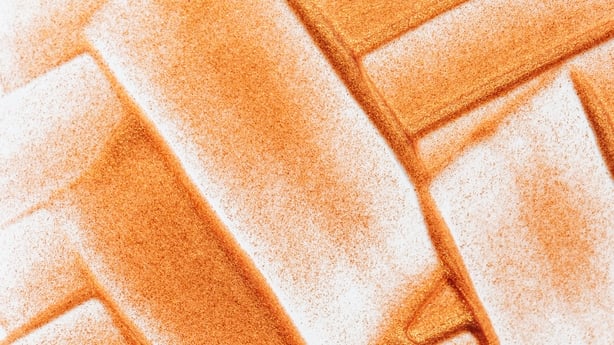
Why is the EU limiting the use of DHA?
The Scientific Committee on Consumer Safety, known as the SCCS is the EU body that evaluates the safety of cosmetics and cosmetic raw materials.
It decided to do a safety assessment on DHA to determine the appropriate safe levels of the ingredient in products such as fake tan.
Until now, an individual product safety assessment would have been carried out on the product to determine the safety level.
Alan Ritchie, Associate Director of REACH and Product Stewardship for WSP UK, which provides a cosmetic regulatory consultancy service and carries out cosmetic safety assessments, explained that the SCCS has carried out a more generic safety assessment on DHA - which he said wouldn't be unusual.
"They have come to the conclusion that the maximum concentration of 10% gives sufficient margin of safety to guarantee safe use of the substance in that application and that has been embodied into the appropriate annex of the cosmetic regulation," Mr Ritchie explained.
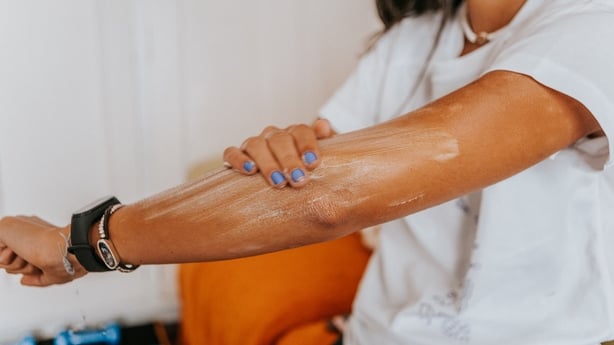
Is DHA dangerous?
When asked if DHA is dangerous, Mr Ritchie had this to say:
"To coin a very popular phrase that toxicologists use - the dose makes the poison."
"So absolutely everything is toxic at sufficient levels, and absolutely everything is safe at sufficiently low levels," he said.
Mr Ritchie said there is no need for consumers to be concerned about products that were being sold before the new DHA limits were introduced.
He said products that were on sale from reputable companies would have gone through the appropriate safety assessment by the company doing the cosmetic safety assessments.
"When you do that, you look at the formulation as a whole, the DHA is one element of it, but they have to look at all of the components of the formulation.
"So those formulations have all gone through safety assessments by qualified toxicologists," he explained.
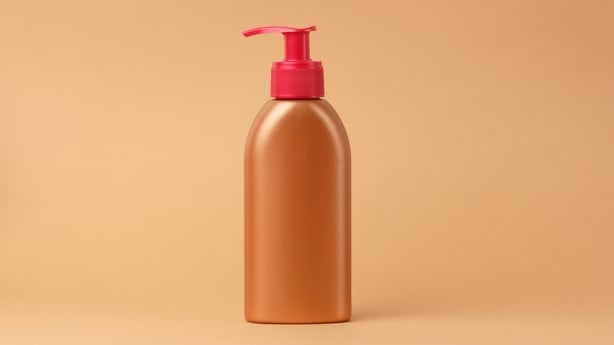
How are companies dealing with the changes?
Linda Stinson is the founder and CEO of well known tanning brands Bellamianta and Iconic Bronze.
The company is based in Northern Ireland but stock their products in shops right across Ireland, including Penneys.
Over 70% of their products have been impacted by the new EU directive, including some of their bestsellers.
Ms Stinson said they started the process of reformulating their products around 18 or 19 months ago.
"We had heard that this may be coming into the EU regulations and we wanted to be ahead of ourselves," she said.
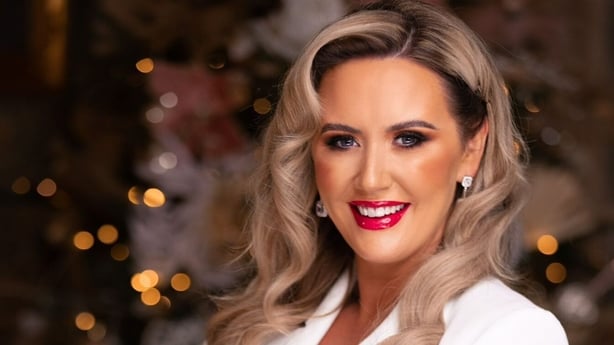
Reformulating products isn't cheap, and Ms Stinson said it cost the business over €150,000.
She described it as "another blow" for the business, following the challenges brought by the Covid lockdowns.
"We were lucky to come out of lockdown and still retain all of our staff," she said.
With many retailers shut during lockdown, Ms Stinson said they still have a high level of their products in stock that contain the old formula.
While the company can still sell their old formula in the UK, Ms Stinson said many of the international retailers are requesting the new formula.
"They ship internationally, so in order for the e-commerce side of their business to flow they have just decided it will be a lot easier for them to buy in the reformulated stock - so it has kind of put a stop to that market where we could have kept selling to," she said.
Ms Stinson said there is a risk that they will have to get rid of the remaining old stock at the end of April.
"Even from an environmental point of view, I think it is pointless to have to basically throw away products where there is nothing wrong with them."
"You’re not just having the product inside that is being wasted, you’re also having the packaging - the outer unit as well as the bottles that they come in," she said.
Like all reputable companies, the Bellamianta and Iconic Bronze products have gone through the individual safety assessment process.
Ms Stinson said the new EU regulation has caused much confusion for those working in the industry, and customers.
"I think for me, and for most other brand owners that are selling fake tan, what we want is an explanation from the EU on why they have decided to lower the amount of DHA."
"There has been no extensive studies that say that DHA harms your skin, and believe you and me, as a brand owner, if I thought that I was including an ingredient that would harm the skin I would never do it, so there has been no clear explanation to the brand owners," she said.
Are all tanning products impacted by the new regulation?
No, not all fake tanning products or brands are impacted by the new regulation.
The Kind Brand Company, which is an Irish business that produces TanOrganic and Vegan Tan, has never had more than 10% DHA in their products.
"The higher the percentage of DHA the darker the colour, so we only ever wanted our tan to be natural," explained Noelle O’Connor, Founder of the Kind Brand Company.
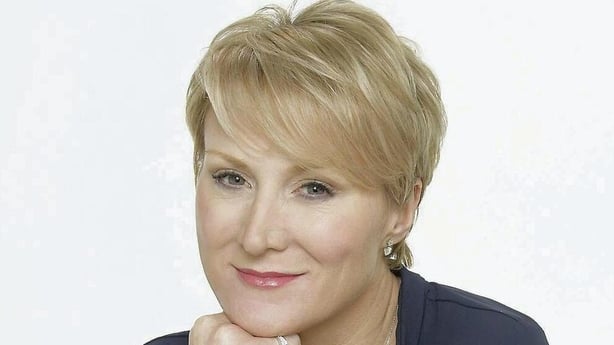
Ms O’Connor said they have brought out a Vegan Tan in an ultra dark shade, but it does not have over 10% DHA.
"We have formulated it to be under 10%, with a DHA boosting ingredient that is not DHA," she explained.
TanOrganic and Vegan Tan use a DHA derived from organic sugar beet called Vegetan, and Ms O’Connor said she has no concerns about the safety of the ingredient.
"It is important to be aware that such safety margins are usually set at very conservative levels, typically 100 fold beyond no adverse effect level.
"So consequently, DHA has been expertly addressed for safe use in self tanning products at 10% - so it is not unsafe, it is just restricted," she said.
Ms O'Connor said she believes people have become a lot more savvy about what they are putting onto their skin.
"I saw the tide turn in 2016/2017," she said.
"People want to know that the products they are buying contain quality ingredients.
"TanOrganic has been developed with the ethos of ethical organic, and that has been in our DNA.
"So we use ingredients such as hyaluronic acid, organic aloe vera juice, cocktails of essential plant oils and of course DHA, which is the tanning active that is in all tans," she said.
Have all companies impacted by the EU directive reformulated their products?
No, some companies have not managed to reformulate all of their products that contain over 10% DHA, with darker tanning products most impacted by the EU directive.
Back in January, Suzanne Jackson, founder of SoSu Dripping Gold tan announced that her ultra dark tan would no longer be for sale after the end of April.
"It’s a sad day for fake tan!" Ms Jackson posted on her Instagram page.
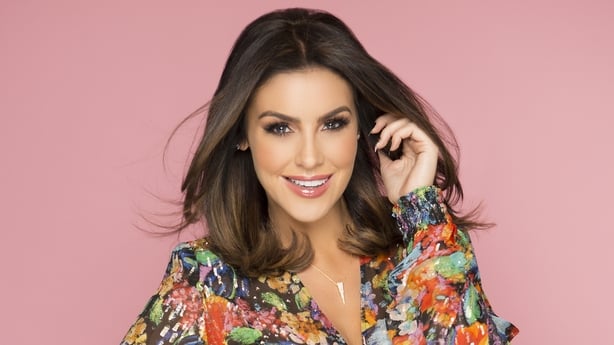
She told her followers that they have been unable to come up with a new formula for the ultra dark shade - which contained over 10% DHA.
"It is nowhere near being where it was," she said at the time.
"I’m hoping that as time moves on and as more ingredients become available we can eventually get that back to where it was.
"But from April 2022, it won’t be on the market," she said.
Ms Jackson said they were able to recreate the medium and dark Dripping Gold formulas in line with the EU directive.
"We just need to get the ultra dark to where it was, which as I said is proving difficult.
"But I’m hoping that by the end of the summer we’ll have it, I just don’t know if we’re going to have it by April."
When contacted by RTÉ news, the company declined to comment on the reformulation process.







